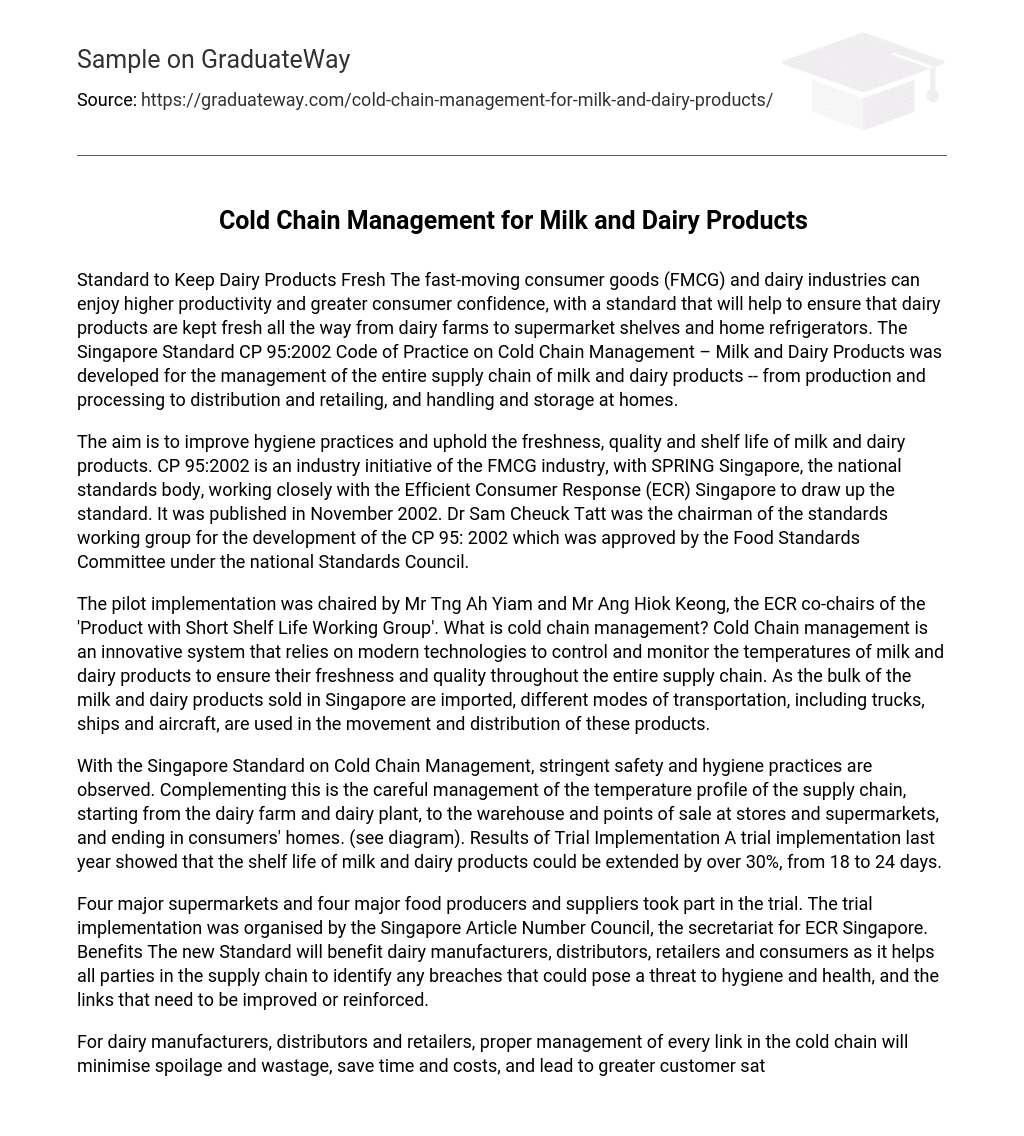Standard to Keep Dairy Products Fresh The fast-moving consumer goods (FMCG) and dairy industries can enjoy higher productivity and greater consumer confidence, with a standard that will help to ensure that dairy products are kept fresh all the way from dairy farms to supermarket shelves and home refrigerators. The Singapore Standard CP 95:2002 Code of Practice on Cold Chain Management – Milk and Dairy Products was developed for the management of the entire supply chain of milk and dairy products — from production and processing to distribution and retailing, and handling and storage at homes.
The aim is to improve hygiene practices and uphold the freshness, quality and shelf life of milk and dairy products. CP 95:2002 is an industry initiative of the FMCG industry, with SPRING Singapore, the national standards body, working closely with the Efficient Consumer Response (ECR) Singapore to draw up the standard. It was published in November 2002. Dr Sam Cheuck Tatt was the chairman of the standards working group for the development of the CP 95: 2002 which was approved by the Food Standards Committee under the national Standards Council.
The pilot implementation was chaired by Mr Tng Ah Yiam and Mr Ang Hiok Keong, the ECR co-chairs of the ‘Product with Short Shelf Life Working Group’. What is cold chain management? Cold Chain management is an innovative system that relies on modern technologies to control and monitor the temperatures of milk and dairy products to ensure their freshness and quality throughout the entire supply chain. As the bulk of the milk and dairy products sold in Singapore are imported, different modes of transportation, including trucks, ships and aircraft, are used in the movement and distribution of these products.
With the Singapore Standard on Cold Chain Management, stringent safety and hygiene practices are observed. Complementing this is the careful management of the temperature profile of the supply chain, starting from the dairy farm and dairy plant, to the warehouse and points of sale at stores and supermarkets, and ending in consumers’ homes. (see diagram). Results of Trial Implementation A trial implementation last year showed that the shelf life of milk and dairy products could be extended by over 30%, from 18 to 24 days.
Four major supermarkets and four major food producers and suppliers took part in the trial. The trial implementation was organised by the Singapore Article Number Council, the secretariat for ECR Singapore. Benefits The new Standard will benefit dairy manufacturers, distributors, retailers and consumers as it helps all parties in the supply chain to identify any breaches that could pose a threat to hygiene and health, and the links that need to be improved or reinforced.
For dairy manufacturers, distributors and retailers, proper management of every link in the cold chain will minimise spoilage and wastage, save time and costs, and lead to greater customer satisfaction. For consumers, it will mean freshness and longer shelf life for milk and dairy products that they consume. They can also buy in larger quantities and make fewer trips to the stores.





